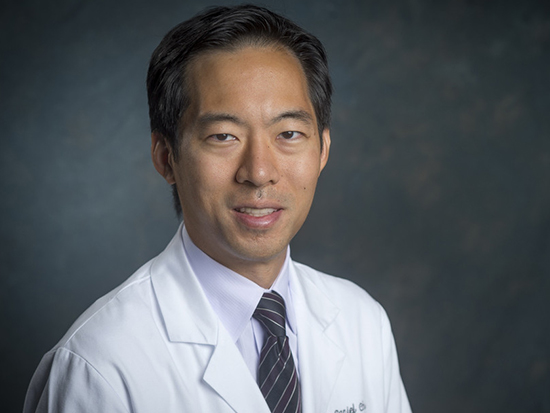Written by: Marina Moody
Media contact: Adam Pope
 The University of Alabama at Birmingham Division of Gastrointestinal Surgery’s Daniel Chu, M.D., was recently awarded a grant of $210,000 from the University of Alabama Health Services Foundation General Endowment Fund for his ongoing Enhanced Recovery After Surgery (ERAS) research, which will expand UAB’s partnership with SeamlessMD to other specialties.
The University of Alabama at Birmingham Division of Gastrointestinal Surgery’s Daniel Chu, M.D., was recently awarded a grant of $210,000 from the University of Alabama Health Services Foundation General Endowment Fund for his ongoing Enhanced Recovery After Surgery (ERAS) research, which will expand UAB’s partnership with SeamlessMD to other specialties.
“We are very excited to receive funding from the UAB Health Services Foundation to support this project,” Chu said.
Using SeamlessMD, UAB Medicine provides patients with a digital experience through which they can access information about their surgeries via cellphone, tablet or computer — from surgery preparation to the recovery process. Physicians at UAB hope that, by using this service to see patients’ symptoms, pain scores and photos after their discharge from the hospital, they can improve patients’ surgical outcomes.
“Through our work in ERAS, we have found patient engagement is a critical part of a successful surgical journey,” Chu said. “Mobile and web-based technologies can be used to enhance such engagement, and we aim to show that such engagement will lead to better outcomes and patient experiences.”
As part of the UAB ERAS initiative, SeamlessMD was first used in colorectal surgery and will now be expanded to the cardiac, thoracic and gynecological oncology specialties at UAB.
“Our project will integrate this patient-centered technology into four major surgical service lines and aim to improve both surgical outcomes and the patient experience,” Chu said.
Chu was also recently featured on UAB MedCast last month, where he spoke on the history and role of ERAS in patient recovery.
“ERAS really basically describes 18 to 20 different individual recovery methods we can use to get patients to recover faster and better,” he said.